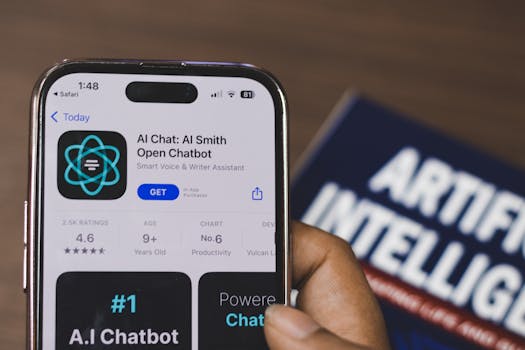
Exploring Emerging Trends in Artificial Intelligence and Machine Learning
Takeaways:
- The rise of ethical AI practices to address bias and accountability.
- Increased adoption of AI in various sectors, including healthcare and finance.
- Advancements in natural language processing enhancing human-computer interactions.
- Integration of AI with Internet of Things (IoT) for smarter solutions.
- Growing importance of AI governance and regulatory frameworks.
Artificial Intelligence (AI) and Machine Learning (ML) are rapidly evolving fields that are fundamentally transforming the way we interact with technology. As these technologies continue to advance, new trends are emerging that promise to enhance their capabilities, applications, and ethical considerations. In this article, we will explore some of the most significant emerging trends in AI and ML, and how they are reshaping our world.
The Rise of Ethical AI

To combat these challenges, many companies are adopting frameworks that promote responsible AI practices. This includes diverse data representation to ensure that AI models are not biased against any particular group. Moreover, there is a growing emphasis on explainability in AI, which allows users to understand how AI systems make decisions. This not only builds trust but also ensures that organizations can be held accountable for their AI-driven decisions.
Additionally, the development of regulatory frameworks around AI is gaining momentum. Governments and international bodies are starting to introduce guidelines and policies aimed at governing AI use, ensuring that ethical standards are maintained. These regulations are expected to shape the future of AI by encouraging organizations to prioritize ethical considerations in their AI strategies.
AI in Healthcare: Transforming Patient Care

Moreover, AI is facilitating drug discovery by analyzing vast datasets to identify potential drug candidates and predict their efficacy. This can dramatically reduce the time and cost associated with bringing new drugs to market. In addition, AI-powered chatbots and virtual health assistants are enhancing patient engagement by providing timely responses to patient inquiries and managing routine health checks.
Telemedicine is another area where AI is making a significant impact. With the rise of remote consultations, AI tools are helping healthcare providers analyze patient data in real-time, leading to better decision-making. As the healthcare industry continues to embrace AI technologies, we can expect further innovations that improve the quality of care and patient experience.
Natural Language Processing Advancements

One of the most significant trends in NLP is the development of transformer models, such as OpenAI’s GPT-3. These models can generate coherent and contextually relevant text, making them invaluable for tasks such as translation, summarization, and sentiment analysis. Businesses are leveraging NLP to enhance customer experiences by providing personalized responses and automating routine inquiries.
Furthermore, advancements in NLP are also facilitating better human-computer interactions. Voice-activated systems are becoming more intuitive, allowing users to communicate naturally with devices. As NLP continues to evolve, we can expect even more sophisticated applications that enhance communication and comprehension between humans and machines.
Integration of AI with IoT

For instance, in smart manufacturing, AI-powered IoT sensors can monitor equipment performance and predict failures before they occur, reducing downtime and maintenance costs. In smart homes, AI can optimize energy consumption by analyzing usage patterns and adjusting settings accordingly.
This synergy between AI and IoT is paving the way for more efficient and intelligent systems across various industries, including agriculture, transportation, and energy management. As the number of connected devices continues to grow, the integration of AI will become increasingly important in leveraging the vast amounts of data generated by IoT systems.






